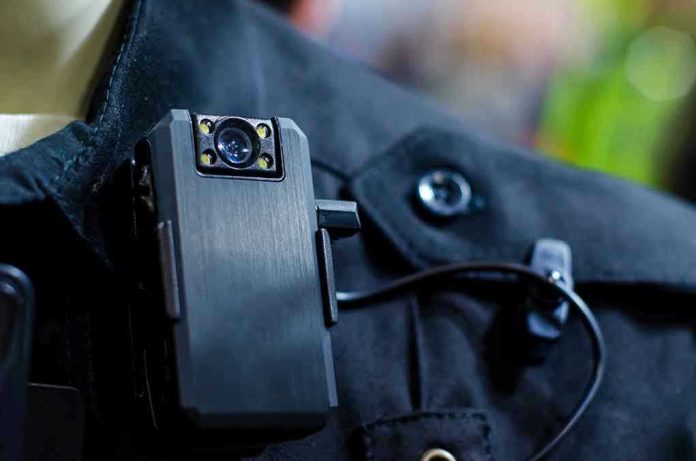
Louisiana taxpayers are forced to pay $9 million to settle a case where a state trooper shot an unarmed passenger in the back, then falsely reported using a Taser instead of her firearm—exposing systemic corruption that delayed medical treatment and nearly cost a young man his life.
Story Highlights
- State trooper shot 19-year-old Clifton Dilley in the back during 2018 traffic stop, leaving him partially paralyzed
- Trooper immediately radioed false report claiming she used a Taser, delaying crucial medical response
- Body camera was never activated; surveillance video later contradicted official accounts
- $9 million settlement ranks among largest police misconduct payouts in Louisiana history
- DOJ report cited this case as evidence of excessive force patterns within Louisiana State Police
False Reporting Delayed Medical Care
During a July 2018 traffic stop on Perkins Road in Baton Rouge, Louisiana State Police Trooper Kasha Domingue pulled over a red Saturn for an illegal U-turn. When the driver fled and told passengers to run, 19-year-old passenger Clifton Scott Dilley exited the vehicle and attempted to run past Domingue. The trooper shot Dilley in the lower back, causing partial paralysis from the waist down. Domingue immediately radioed dispatch reporting she had deployed her Taser on the suspect.
This false report proved devastating for Dilley’s medical treatment. Emergency responders prepared for a Taser incident rather than a gunshot wound, potentially delaying appropriate trauma care for the seriously injured teenager. The deception demonstrates how police dishonesty can compound physical harm to victims while creating false narratives that protect officers from accountability.
Technology Exposes Police Deception
Domingue’s account began unraveling when investigators discovered she had failed to activate her body-worn camera during the encounter. Surveillance video from the area contradicted her official statements about the incident. Louisiana State Police internal investigation determined Domingue used unjustified force and provided inconsistent accounts that could not be reconciled with available evidence. These technological safeguards proved essential in exposing the truth behind Domingue’s false reporting.
The case highlights critical failures in police accountability systems. Body cameras serve as protection for both officers and civilians, yet Domingue deliberately avoided this oversight. Her decision to disable this transparency tool, combined with false radio communications, represents a calculated attempt to conceal misconduct. Such behavior undermines public trust and demonstrates why technological oversight remains essential for honest law enforcement.
Systemic Problems Revealed Through Federal Investigation
The Dilley shooting gained renewed significance when the U.S. Department of Justice issued a comprehensive report identifying patterns of excessive force within Louisiana State Police. Federal investigators specifically cited this case as evidence of systemic problems in LSP’s use-of-force practices during arrests and vehicle pursuits. This federal review transforms an isolated incident into evidence of institutional failure requiring comprehensive reform.
Louisiana State Police fired Domingue in March 2021 for unjustified use of force and providing inconsistent accounts. She faced criminal charges including aggravated second-degree battery and illegal use of a weapon in October 2020. However, her criminal record was expunged in October 2023, though local reports indicate she remains banned from future law enforcement employment. The mixed outcomes reflect ongoing challenges in holding officers accountable for serious misconduct.
Massive Settlement Exposes Taxpayer Burden
Court documents reveal parties reached settlement terms in June 2025, with dismissal filings entered in early August 2025. The approximately $9 million payout ranks among the largest police misconduct settlements in Louisiana history, placing enormous financial burden on taxpayers for one officer’s actions. This massive settlement signals courts recognize the severity of shooting an unarmed person while filing false reports that compromise medical care.
The settlement amount reflects not just compensation for Dilley’s permanent paralysis, but recognition of the compounding harm caused by Domingue’s deception. False reporting delayed appropriate medical response and attempted to shield misconduct from scrutiny. Louisiana taxpayers ultimately bear the cost of both the officer’s violence and dishonesty, demonstrating how police misconduct creates lasting financial obligations for communities.
Sources:
Man reaches settlement with trooper who shot him in back, left him paralyzed




